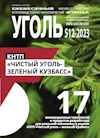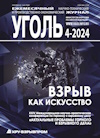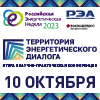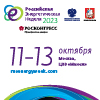
MECHANICAL ENGINEERING
Original Paper
UDC 621:338.363:338.28 © P.V. Simonin, I.Yu. Litvin, N.A. Cherepovskaya, A.A. Kuzmina, 2023
ISSN 0041-5790 (Print) • ISSN 2412-8333 (Online) • Ugol’ – Russian Coal Journal, 2023, № 2, pp. 65-71
DOI: http://dx.doi.org/10.18796/0041-5790-2023-2-65-71
Title
Mechanical engineering industry: strategic development priorities in conditions of the sanctions
Author
Simonin P.V.1, Litvin I.Yu.1, Cherepovskaya N.A.1, Kuzmina A.A.2
1 Financial University under the Government of the Russian Federation, Moscow, 125993, Russian Federation
21 National University of Science and Technology “MISIS” (NUST “MISIS”), Moscow, 119049, Russian Federation
Authors Information
Simonin P.V., Phd (Economic), Associate Professor, Chair of Management and Innovation, Faculty of Higher School of Management, e-mail: pvsimonin@fa.ru; e-mail: simoninp-v@mail.ru
Litvin I.Yu., Phd (Economic), Associate Professor, Deputy Head for Educational and Methodological Work Faculty of Higher School of Management, e-mail: IYLitvin@fa.ru
Cherepovskaya N.A., Phd (Economic), Associate Professor, Chair of Management and Innovation, Faculty of Higher School of Management, e-mail: nacherepovskaya@fa.ru
Kuzmina A.A., Phd (Economic), Associate Professor, senior Lecturer of the Department of Economics University of Science and Technology, e-mail: kuzmina.aa@misis.ru
Abstract
The article discusses the strategic priorities of the development of industry and, in particular, mechanical engineering in the face of unprecedented sanctions. The authors substantiate that the development of the machine-building industry is the key to the strategy of economic development of the whole country, despite the fact that enterprises have faced a complex of systemic problems: insufficient investment, capital outflow, the formation of an unstable export-import trade flow and loss of market share. The article substantiates the further strengthening of development problems and difficulties in creating new jobs, income growth, innovation and emerging multiplier effects in view of the ongoing tax burden, political-institutional and unfavorable sanctions conditions for the machine-building industry and the inflation of interest rates. The analysis showed that the main factors limiting the development of mechanical engineering and the industry as a whole are not the existence of sanctions as such, but the uncertainty of the economic situation, insufficient demand for products, lack of financial resources, despite the fact that the industry will experience significant growth in the forecast period. The authors propose to use a matrix of prospects for the development of the machine-building industry, taking into account social and environmental responsibility, based on which it is possible to determine strategic priorities and ensure long-term industrial growth under sanctions.
Keywords
Strategic priorities, Industry, Mechanical engineering, Sanctions, Industrialization, Industrial growth, Trade flow, Market, Social and environmental responsibility.
References
1. Mitchell Andrew. Sanctions and the world trade organization, 2017.
3. Tonya Emmanuel. IndustriaL development and its challenges in Tanzania, 2020.
4. Anti-Russian sanctions. [Electronic resource]. Available at: https://iz.ru/story/sanktcii-protiv-rossii (accessed: 15.01.2023).
5. Bojang I. & James Okrah J. The economic impact of sanctions on the Russian economy. Models, methods, algorithms and software in Economics and natural resource management. XI International Conference: "Russian Regions in the Focus of Change. Yekaterinburg. 17.11.2016 — 19.11.2016.C.443-451. (In Russ.).
6. Creating a Strategic Plan for Local Economic Development: A Guide. FCM-CARILED. Trinidad and Tobago, 2014, pp. 49.
7. Haider K. Industrialization and Development Strategies in the 21st Century. Towards Sustainable Innovation Systems, 2013, August, pp. 56.
8. Kuruvilla S. National Industrialisation Strategies and Their Influence on Patterns of HR Practices. Available at: https://ecommons.cornell.edu/bitstream/handle/1813/75876/Kuruvilla82_National_Industrialisation_Strategies.pdf?sequence=1 (accessed 15. 01.2023).
9. Ivanter V.V. Strategy of transition to economic growth. Problemy prognozirovaniya, 2016, (1), pp. 3-7.
10. Russian statistical yearbook 2021. [Electronic resource]. Available at: https://gks.ru/bgd/regl/b21_13/Main.htm (accessed: 15. 01.2023).
11. Industrial Development Report 2022. The Future of Industrialization in a Post-Pandemic World. Vienna, 2021, P. 196.
12. Glazyev S.Yu. A report on the underlying causes of the growing chaos and measures to overcome the economic crisis. [Electronic resource]. Available at: http://www.fa.ru/Documents/Glaziev_Chaos.pdf (accessed 15.01.2023).
13. Trachuk A. & Linder N. Innovative activity of industrial enterprises: measurement and ef-fectiveness evaluation. Strategic decisions and risk management, 2019, (10), pp. 108-121.
14. Simonin P.V., Kapustina N.V., Kostromina E.A. & Kosolapov Yu.V. Influence of human resources on development of the textile industrial cluster in the conditions of Industry 4.0. Izvestiya vysshih uchebnyh zavedenij.Tehnologiya tekstil?noj promyshlennosti, 2022, (2), pp. 64-69. (In Russ.).
15. Panibratov A. Sanctions, cooperation, and innovation: Insights into Russian economy and implications for Russian firms. BRICS. Journal of Economics, 2021, (2), pp. 4–26.
16. Islankina E.A. Theoretical aspects in internationalization of clusters // Innovatsii v obrazovanii.Vestnik Nizhegorodskogo universiteta im.N.I.Lobachevskogo, 2014, (1), pp. 36-45. (In Russ.).
17. Petrova A.D., Blazhenkova N.M., Aznabaeva G.Kh. et al. Sanctions and their impact on the economy of the Russian Federation: history and modernity. Rossiyskoe predprinimatelstvo, 2018, Vol. 19, (12), pp. 3705-3736. (In Russ.).
18. Considerations of Industrial Development Strategy. [Electronic resource]. Available at: https://openjicareport.jica.go.jp/pdf/11661287_23.pdf (accessed 15.01.2023).
19. Industrial development under sanctions pressure: evidence from Russia / I. Nusratullin, N.i Sergeev, M. Kuznetsov et al.Amazonia Investiga, 2020, Vol. 9, (28), pp. 465-474.
20. Porter M.E. The competitive advantage of nations. New York: Free Press, 1990.
21. Cluster Development Strategy. [Electronic resource]. Available at: https://openjicareport.jica.go.jp/pdf/11600327_02.PDF (accessed 15.01.2023).
22. Simachev Yu.V., Akindinova N.V., Yakovlev A. A. et al. Structural policies in Russia: new conditions and possible agendas / Abstracts of the XIX April International Scientific Conference on challenges in development of economy and society, Moscow, 10-13 April 2018, Academic Adviser: Yasin Е.G., Higher School of Economics National Research University, Moscow, Publishing House of the Higher School of Economics, 2018, 32 p. (In Russ.).
23. Industrial production in the Russian Federation. 2021: Statistical Compilation. Federal State Statistics Service. Moscow, Rosstat, 2021, 305 p. (In Russ.).
24. Eder Julia, Schneider Etienne. Progressive Industrial Policy – A Remedy for Europe!? Journal f?r Entwicklungspolitik, 2018, (34), pp. 108-142.
25. Otsuka Keijiro & Sonobe Tetsushi. A Cluster-Based Industrial Development Policy for Low-Income Countries, 2011.
26. Novikov S.V., Lastochkina V.V.& Solodova A.D. Import substitution in the industrial sector: analysis and facts. [Electronic resource]. Available at: https://iopscience.iop.org/article/10.1088/1757-899X/537/4/042056/pdf (accessed 15.01.2023).
For citation
Simonin P.V., Litvin I.Yu., Cherepovskaya N.A. & Kuzmina A.A. Mechanical engineering industry: strategic development priorities in conditions of the sanctions. Ugol’, 2023, (2), pp. 65-71. (In Russ.). DOI: 10.18796/0041-5790-2023-2-65-71.
Paper info
ReceivedDecember 1, 2022
Reviewed December 15, 2022
Accepted January 26, 2023









